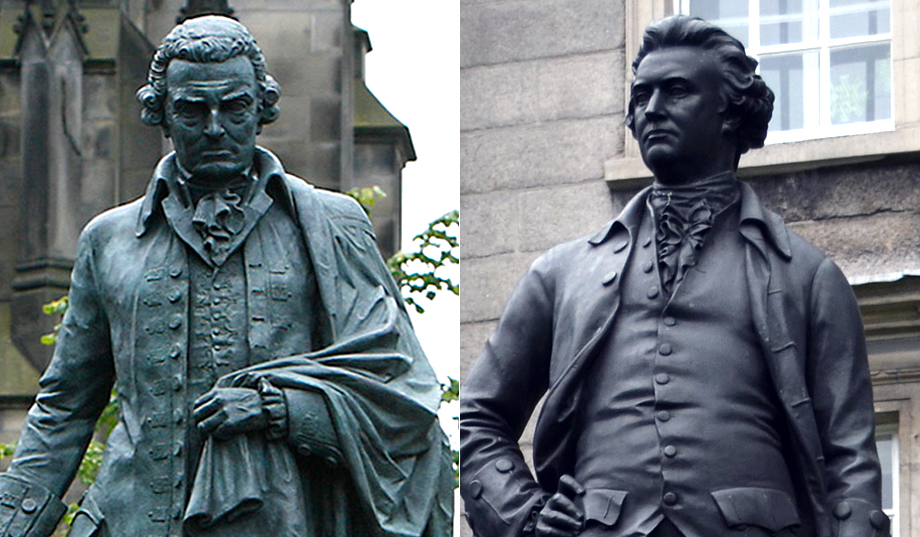


In the May essay for the Adam Smith 300 series for Capital Matters, Samuel Gregg has written about Smith’s relationship with Edmund Burke. Smith and Burke knew each other personally, but they knew each other’s work before they met in real life.
They weren’t exact copies of each other, partly owing to their different stations in life: Smith the scholar and Burke the politician. After noting some differences, though, Gregg emphasizes the major overlaps in their thought:
Smith and Burke both recognized that the expansion of commercial freedoms would introduce considerable flux and upheaval into society. The consequent expansion of wealth and economic opportunity was, they held, worth it.
Yet Smith and Burke also believed in the necessity of habits and institutions that would mediate the pressures unleashed by a dynamic economy, remind people that the fullness of human existence was not to be found in acquiring stuff, and emphasize our duties to others that go beyond contractual obligations.
Some of their recommendations concerned the role of government and legal institutions. Minimal by today’s standards, they were nonetheless real, ranging from protecting national security to the rule of law.
This is not, however, where Burke and Smith’s emphases lay. Burke looked to long-standing belief systems considerably older than the Enlightenment to temper markets. In Burke’s words, “[w]e still feel within us, and we cherish and cultivate, those inbred sentiments which are the faithful guardians, the active monitors or our duty, the true supporters of all liberal and manly morals.” Prominent among these were religion and the concrete responsibilities that it spelt out concerning those in need. These went together with cultivation of habits such as acting justly and with civility to all. Liberty and responsibility thus went hand-in-hand and would help limit the scope for hedonism, corruption, and injustice in a growing economy.
Smith arrived at similar conclusions. His conception of man was never that of homo economicus. Smith was always attuned to the other-regarding dimension of commercial exchanges. They required, Smith thought, a willingness to enter into other people’s circumstances, to put yourself in their place, even if temporarily.
Read the whole thing here.
